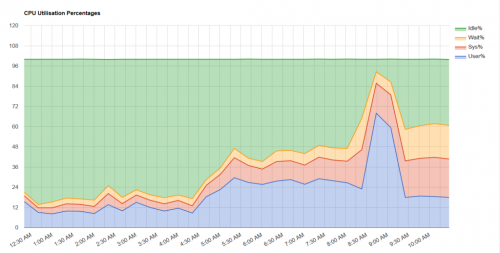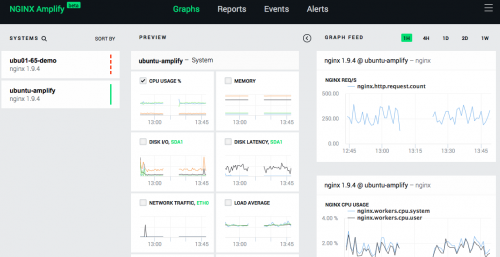Quora thread on “What are some things you wish you knew when you started programming?” is a goldmine of wisdom. Irrelevant of how experienced you – whether you’ve been programming for decades or just thinking about a new career path, which programming languages and technology stacks you use, whether you’ve completed format education or taught yourself everything you know, I’m sure you’ll find valuable lessons and food for thought in there.
Month: March 2017
How to monitor your Linux servers with nmon
“How to monitor your Linux servers with nmon” article provides some details on how to use the comprehensive server monitoring tool “nmon” (Nigel’s Monitor) to keep an eye on your server or two. If you have more than a handful of servers, you’d probably opt out for a full blown monitoring solution, like Zabbix, but even with that, nmon can be useful for quick troubleshooting, screenshots, and data collection.
I’ve heard of nmon before and even used it occasionally. What I didn’t know was that it can collect system metrics into a file, which can then later be analyzed and graphed with the nmonchart tool.
That’s pretty handy. The extra bonus is that these tools are available in most Linux distributions, so there is no need to download/compile/configure things.
Nginx Amplify : comprehensive Nginx monitoring
Somehow I missed the announcement of the Nginx Amplify (beta) back in November of last year, so here it goes now.
Nginx Amplify is a new tool for the comprehensive monitoring of Nginx web servers. Here’s what it can do for you:
- Visually identify performance bottlenecks, overloaded servers, or potential DDoS attacks
- Improve and optimize NGINX performance with intelligent advice and recommendations
- Get alerts when something is wrong with the delivery of your application
- Plan capacity and performance for web applications
- Keep track of systems running NGINX
As well
as the regular proactive monitoring of the Nginx issues. Have a look at the documentation for more details.
On Impostor Syndrome
David Walsh shares some thoughts on an impostor syndrome. I’m sure anyone in the tech industry can relate. I certainly do.
“Impostor” is a powerful word but that’s how I have felt during all of my career as a professional web developer. I feel like I’ve learned every day of the ride but I feel like I’m way behind. I feel like people see me as something of an expert where I see myself as an accident waiting to happen. I’m a complete impostor. A fraud.
Apart from the honesty of his feelings, I like his ways of snapping out of it. They do work for me too:
- Look at your (hopefully decent) employment history and know that, on a basic level, you’re much more wanted than you’re wanted gone
- Log onto the IRC channel of a skill you feel comfortable with and answer questions of those asking
- Realize that people who consider themselves “experts”, and don’t go through waves of self doubt, are idiots that are so arrogant to not know what they don’t know
- Remember the last time a non-developer friend asked you the most basic of computer-related questions
- Perform any simple exercise in the JavaScript console
- BLOG! The worst thing that can happen is someone corrects you and you learn something out of it
- Review your code and find little nits to fix
One other thing that helps me, is this bit by Joe Rogan:
He talks more generically about life, but I think it’s equally applicable to technology knowledge as well.
Getting started with workflows in PHP
For a large project at work, we need to integrate or develop a workflow engine. I worked a little bit with workflow engines in the past, but the subject is way to big and complex for me to claim any expertise in it.
So, I am looking at what’s available these days and what are our options. This post is a collection of initial links and thoughts, and it’s goal is mostly to document my research process and findings, and not to provide any answers or solutions yet.


